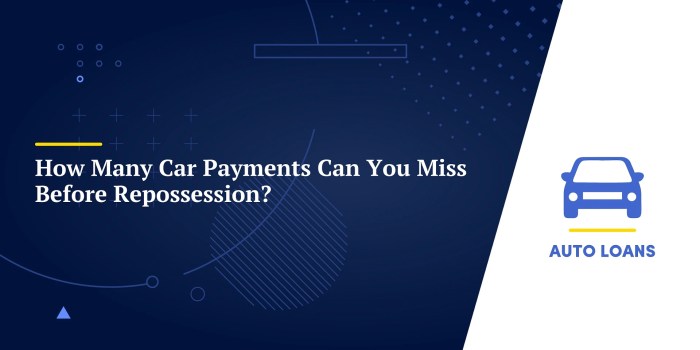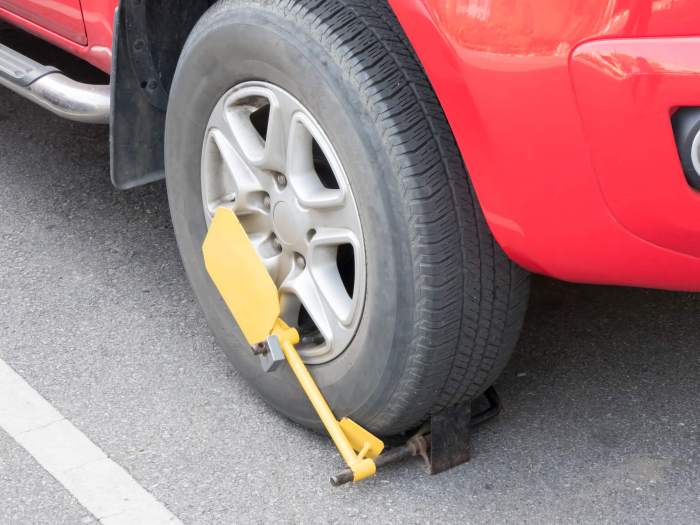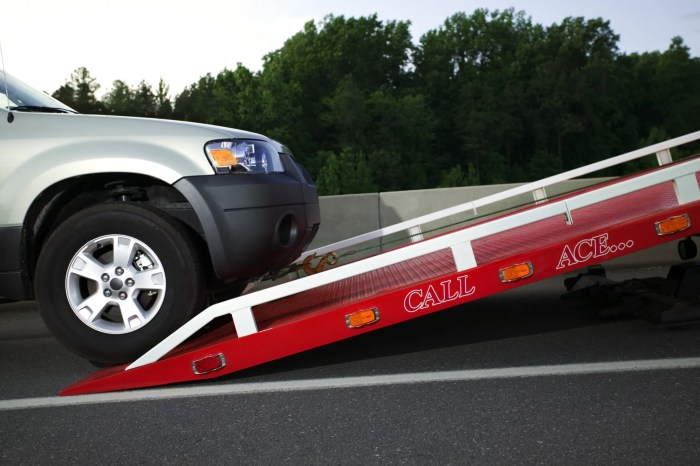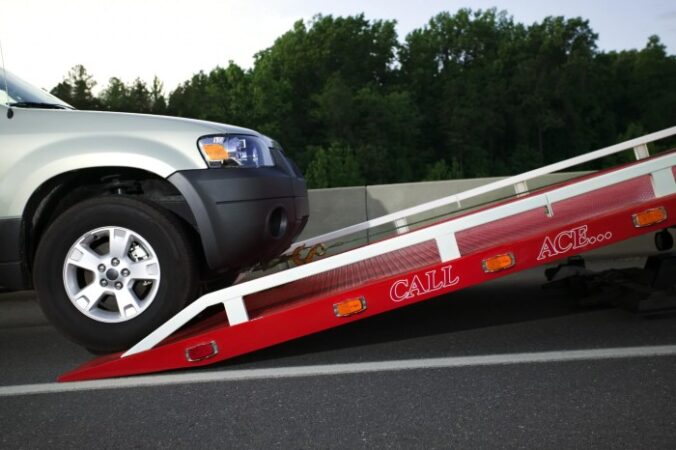Can a finance company repo your car for no insurance? It’s a question that might send chills down your spine, especially if you’ve ever had a lapse in coverage. The answer, in a nutshell, is a resounding “maybe.” It’s all about the fine print in your loan agreement, and understanding what those little words mean can be the difference between keeping your ride or losing it.
Think of it like a game of “gotcha!” Your lender isn’t just being a jerk. They’re looking out for their own financial well-being, and that means making sure their investment is protected. And that investment is your car, baby! If you don’t have insurance, they’re on the hook for any damages, and that’s a risk they’re not willing to take.
Loan Agreements and Insurance Requirements
When you finance a car, the lender wants to protect their investment. That’s why most loan agreements include clauses about car insurance. These clauses ensure that the lender is covered in case of damage or loss to the vehicle.
Insurance Requirements in Loan Agreements
Loan agreements typically include clauses that require borrowers to maintain certain levels of insurance coverage. This coverage protects the lender’s financial interest in the car. These clauses usually specify:
- Types of Coverage: Loan agreements often require borrowers to have liability insurance, collision coverage, and comprehensive coverage. Liability insurance protects the borrower against claims from others in case of an accident. Collision coverage covers damage to the car caused by an accident. Comprehensive coverage covers damage to the car caused by events like theft, fire, or vandalism.
- Minimum Coverage Amounts: Loan agreements often specify the minimum amount of coverage required for each type of insurance. This ensures that the lender has sufficient protection in case of a significant loss.
- Insurance Provider: Some loan agreements may restrict borrowers to specific insurance providers. This ensures that the lender can verify the coverage and ensure it meets their requirements.
Examples of Language in Loan Agreements
Here are some examples of language commonly found in loan agreements regarding insurance:
“Borrower shall maintain insurance coverage on the vehicle, including liability, collision, and comprehensive coverage, in amounts satisfactory to Lender.”
“Borrower shall provide Lender with proof of insurance coverage upon request.”
“Borrower shall not cancel or reduce insurance coverage without prior written consent from Lender.”
Legal Implications of Failing to Maintain Insurance
Failing to maintain insurance as required by the loan agreement can have serious legal and financial consequences. These consequences can include:
- Breach of Contract: Failure to maintain insurance is a breach of the loan agreement, which can lead to legal action by the lender.
- Repossession: If the borrower fails to maintain insurance, the lender may have the right to repossess the vehicle. This means the lender can take back the car, even if the borrower is making payments.
- Financial Penalties: The lender may also impose financial penalties, such as late fees or additional interest charges, for failing to maintain insurance.
Repossession Rights and Procedures

Finance companies have the legal right to repossess your car if you default on your loan. This means that you have failed to make payments according to the terms of your loan agreement. This right is typically granted in the loan agreement itself, and it’s backed by state laws.
Repossession Process
The process of repossessing a vehicle involves several steps.
- Notice of Default: The finance company will typically send you a notice of default, informing you that you are behind on your payments. This notice will usually give you a grace period to catch up on your payments before they proceed with repossession.
- Repossession: If you fail to cure the default within the grace period, the finance company can legally repossess your car. This is usually done by a repossession agent, who will tow the vehicle away. They can do this without a court order, as long as they follow the rules of your state.
- Notice of Repossession: After repossessing your vehicle, the finance company will send you a notice informing you that your car has been repossessed. This notice will typically include details about where your vehicle is being stored and how you can get it back.
- Sale of the Vehicle: The finance company can then sell your vehicle at a public auction. If the sale price is not enough to cover the outstanding loan balance, you may still be responsible for the difference. This is known as a “deficiency balance.”
Repossession for Lack of Insurance
Repossession for lack of insurance is a separate issue from repossession for non-payment. While some states require borrowers to maintain insurance on their vehicles, it’s not a universal requirement. If your loan agreement includes a clause requiring you to maintain insurance, failure to do so could give the finance company grounds to repossess your car.
Consequences of Repossession

Repossession of your car can be a major financial blow, leaving you with more than just the loss of your vehicle. It can have lasting repercussions on your finances and future borrowing ability.
Financial Implications
Repossession can leave you with a significant amount of debt remaining, even after the car is sold. The lender will typically sell the car at auction, and if the proceeds from the sale don’t cover the remaining loan balance, you’ll be responsible for the difference. This is known as a deficiency balance. For example, if you owe $20,000 on your car loan, and the lender sells it for $15,000, you’ll still owe $5,000.
Impact on Credit Score
Repossession can have a devastating impact on your credit score. A repossession is considered a serious negative mark on your credit history, and it can significantly lower your credit score. This can make it difficult to get approved for loans, credit cards, and even mortgages in the future. Your credit score may also be affected by any late payments or missed payments that occurred before the repossession.
Options for Borrowers Facing Repossession
If you are facing repossession, there are a few options available to you:
- Negotiate with the lender: You may be able to negotiate a payment plan with the lender to avoid repossession. This could involve making a lump sum payment or increasing your monthly payments. You may also be able to negotiate a voluntary surrender of the vehicle, which could help minimize the negative impact on your credit score.
- Seek legal advice: If you believe the repossession was illegal or unfair, you may want to consult with an attorney. An attorney can help you understand your rights and options.
State Laws and Regulations

Navigating the murky waters of car repossession can be a real head-scratcher, especially when you consider that state laws can vary like the toppings on a pizza. So, buckle up, buttercup, because we’re about to dive into the world of state-specific repossession rules.
Repossession Laws Across States
Each state has its own set of rules for how a lender can repossess a car. This means that the process, the rights of the borrower, and the consequences of repossession can all differ depending on where you live. Let’s break down some key differences.
- Notice Requirements: Some states require the lender to give the borrower a certain amount of notice before repossessing the car, while others don’t. This notice might be a formal letter or even just a phone call. Think of it as a warning shot before the repo man comes knocking.
- Breach of the Peace: Many states have laws that prevent lenders from using force or intimidation to repossess a car. This means that they can’t break into your garage, or use threats to get the car. It’s all about keeping things peaceful, like a chill hangout with your friends.
- Right to Redemption: Some states allow the borrower to “redeem” the car after it’s been repossessed. This means that they can pay off the debt and any repossession fees to get the car back. It’s like a second chance to save the day.
- Sale of the Repossessed Car: States have different rules for how the lender can sell the repossessed car. Some require the lender to sell it at a public auction, while others allow for private sales. It’s like choosing the right venue for a car sale.
Insurance Requirements for Financed Vehicles
States also have different regulations about insurance requirements for financed vehicles. Think of it as the “car insurance police” keeping things in check.
- Minimum Coverage: Most states require borrowers to have at least liability insurance on a financed car. This means that they have to cover the costs of damage or injuries they cause to others in an accident. It’s like having a safety net for everyone on the road.
- Full Coverage: Some lenders require borrowers to have full coverage insurance, which includes liability, collision, and comprehensive coverage. This provides protection for the car itself, as well as others. It’s like a double-layered safety net, for ultimate peace of mind.
- Proof of Insurance: Lenders often require borrowers to provide proof of insurance, such as a copy of the insurance policy. This ensures that the lender is covered in case of an accident. It’s like having a receipt to show you’re covered.
State-Specific Regulations
Here’s a table that summarizes the key insurance requirements and repossession procedures in a few states. It’s like a cheat sheet for navigating the repossession jungle.
| State | Insurance Requirements | Repossession Procedures |
|---|---|---|
| California | Liability insurance required. Full coverage may be required by lender. | Notice required before repossession. Repossession must be peaceful. Right to redemption. |
| Florida | Liability insurance required. Full coverage may be required by lender. | Notice required before repossession. Repossession must be peaceful. Right to redemption. |
| Texas | Liability insurance required. Full coverage may be required by lender. | Notice required before repossession. Repossession must be peaceful. Right to redemption. |
| New York | Liability insurance required. Full coverage may be required by lender. | Notice required before repossession. Repossession must be peaceful. Right to redemption. |
Protecting Yourself from Repossession
Repossession is a serious matter that can have a significant impact on your finances and credit score. Fortunately, there are steps you can take to protect yourself from this outcome.
Maintaining Insurance
Maintaining insurance is crucial in protecting yourself from repossession. Your lender requires insurance to protect their investment in your car. If you fail to maintain insurance, the lender can repossess your vehicle.
Staying in Communication
Communication is key in avoiding repossession. If you are experiencing financial difficulties, contact your lender as soon as possible. Explain your situation and work together to find a solution. Many lenders are willing to work with borrowers who are open and honest about their circumstances.
Seeking Assistance
If you are struggling to make payments, there are resources available to help. You can contact a credit counseling agency or a non-profit organization that provides financial assistance. They can offer advice and support to help you get back on track.
Steps to Take When Facing Potential Repossession, Can a finance company repo your car for no insurance
- Contact your lender: The first step is to contact your lender and explain your situation. Let them know why you are having difficulty making payments and see if they are willing to work with you.
- Negotiate a payment plan: If you are behind on payments, your lender may be willing to work with you to create a payment plan. This could involve making smaller payments over a longer period of time or temporarily suspending payments.
- Seek legal advice: If you are unable to reach an agreement with your lender, you may need to seek legal advice. An attorney can help you understand your rights and options.
- Consider selling your vehicle: If you are facing repossession, you may be able to sell your vehicle to avoid it. This will allow you to pay off some of your debt and avoid the negative impact of a repossession on your credit score.
Closing Notes
So, buckle up, because the bottom line is this: Insurance is your shield against the repo man. Keep it current, keep it valid, and keep it in your name, and you’ll be riding high. But if you slip up, you might find yourself in a sticky situation, facing repossession and a whole lot of financial headaches. It’s not a game you want to play, so stay informed, stay insured, and keep your wheels rolling!
Q&A: Can A Finance Company Repo Your Car For No Insurance
What if I can’t afford insurance?
If you’re struggling to afford insurance, contact your lender immediately. They might be able to work with you on a payment plan or help you find affordable insurance options.
Can I get my car back after it’s been repossessed?
It’s possible, but it’s not easy. You’ll need to work out a repayment plan with the lender, which may include paying back the full amount of the loan plus any repossession fees.
What if I’m only a few days late on my insurance payment?
Even a short lapse in coverage can trigger repossession, so it’s important to stay on top of your insurance payments.
